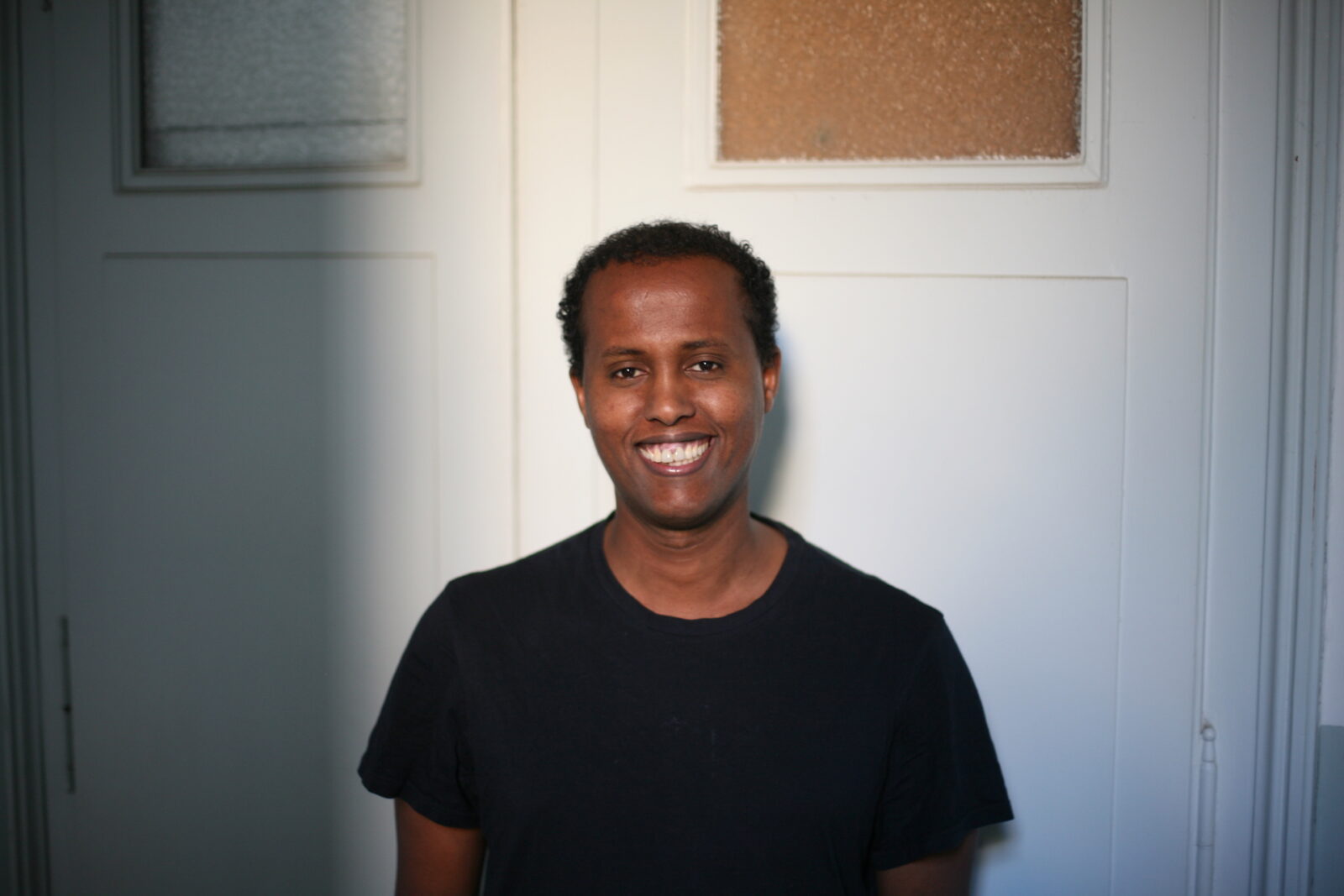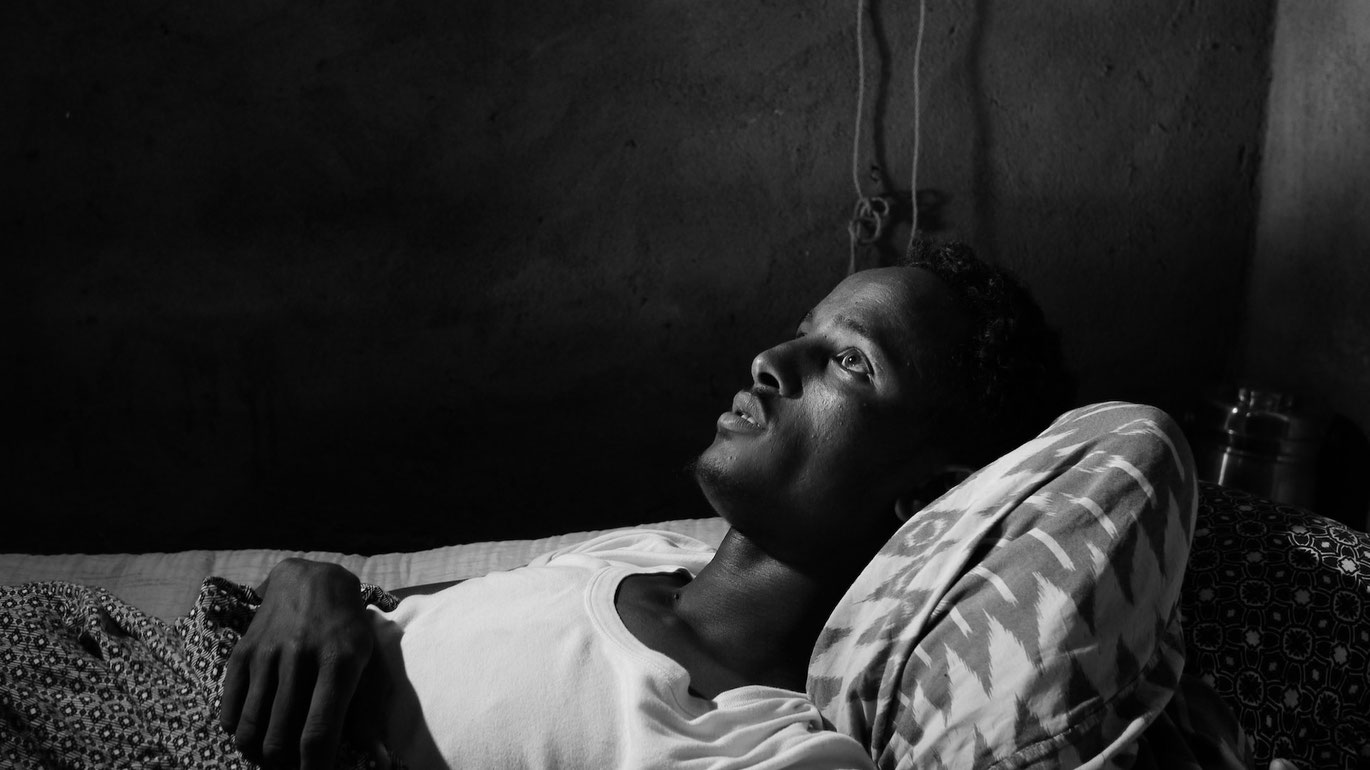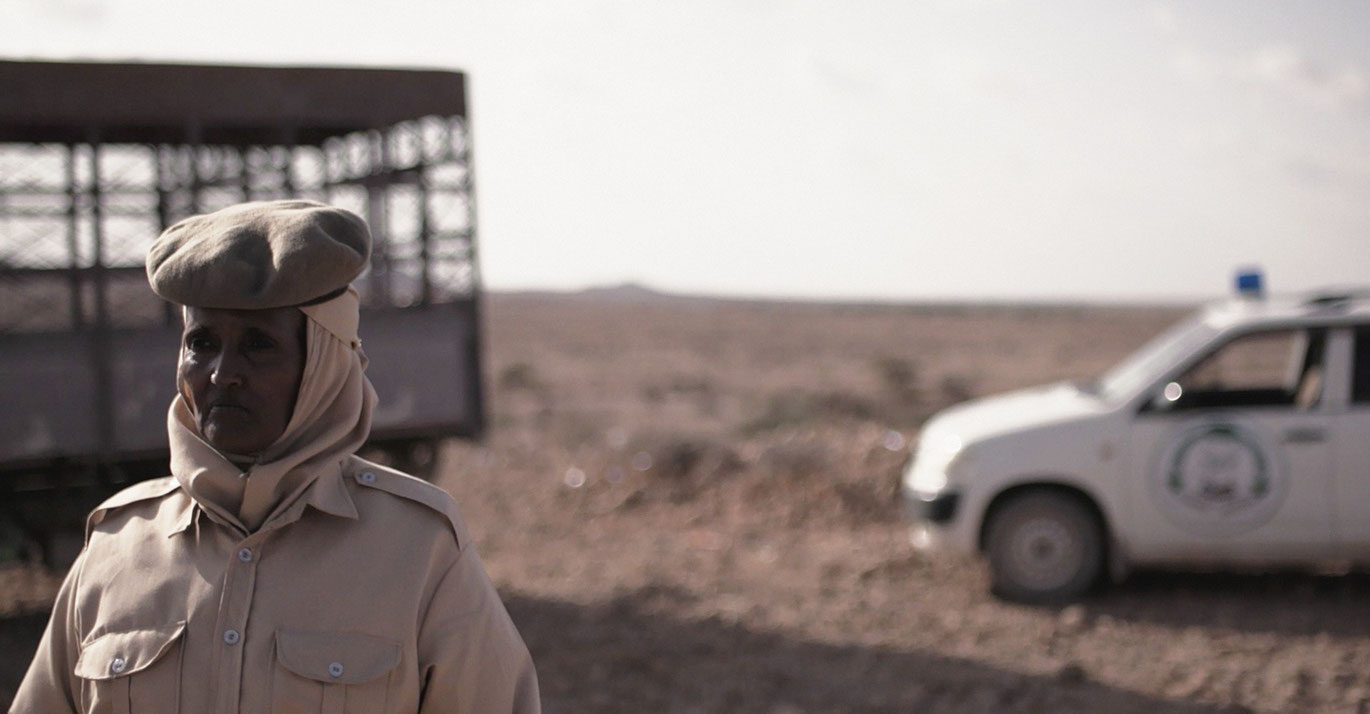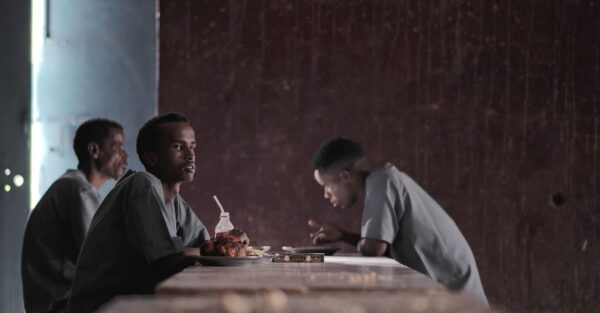Sparking Curiosity
Mo Harawe on Life on the Horn and Will My Parents Come to See Me
Micro commentaries on macro sociopolitical issues characterise Mo Harawe’s body of work. The Somalian filmmaker discusses two of his recent shorts, now available to watch on This Is Short.

Mo Harawe does not remember a singular moment when it occurred to him that storytelling would be his mission. The Somalian filmmaker, who will have his debut feature The Village Next to Paradise showing in the Un Certain Regard section at the forthcoming 77th Cannes Film Festival, describes his journey towards cinema as more of a curiosity: a need to tell stories that gradually emerged from observing the world around him.
Born in Mogadishu, Berlinale Talents alumnus Harawe moved to Austria in 2009 and has called the country home since then. Speaking to me via Zoom from a café in Vienna, the filmmaker discusses two of his most recent shorts, Life on the Horn (2020) and Will My Parents Come to See Me (2022)— both now available to watch on This Is Short. Filmed in his native Somalia, the films present micro commentaries on macro sociopolitical issues, a narrative device that characterises Harawe’s body of work.
Life on the Horn, which premiered in Locarno’s Pardi di Domani section, uses potent monochromatic images to detail life in a coastal Somalian village laid decrepit by environmental degradation and forced migration. A young man and his father, a pair of the last holdouts, watch helplessly as their once-thriving community devolves into a wasteland. With each structured visual frame—a crack on a door, a frail character swallowing his last pill, an abandoned construction site—Harawe communicates the slow and quiet decline of both spirit and landscape, pointing out how intertwined humanity is with its environment.
On the surface, Life on the Horn and Will My Parents Come to See Me appear unrelated, but upon a closer look, it is easy to see how the catastrophe chronicled in the former film could lead directly to the latter’s mournful events. Again, Harawe blends the personal and political in this haunting account of the toll that Somalia’s embrace of the death penalty takes, not just on the inmates but also on people tasked with upholding the system.
In Will My Parents Come To See Me, a prison warden takes a moment in her car before going in to attend to the day’s task: running logistics to ensure that the execution of one of her young prisoners goes hitch-free. The film closes with a similar image of the warden seen again in her car at the end of the day. But by then, she is a different person. Harawe shows how a day’s work for a uniformed officer maintaining the oppressive structures of the state can feel like bearing the weight of several lifetimes.
In both films, Mo Harawe confronts society’s indifference towards issues that should demand outrage and communal organising. Here is how he brought these shorts to life.
While the story you tell in Life on the Horn is compelling, the film is as much about what does not appear on-screen. What is the background story?
We hear a lot about Somalian pirates from the outside world, but primarily that they are poor, hungry, or crazy. With this short, the idea was to tell the other side of their story. For the last fifty years, a lot of things have been happening in the Somali sea, from illegal fishing to the dumping of toxic chemical waste by various countries, while the sea simply wasn’t protected. This, in turn, has affected the people, their livelihood, and health. The fishermen would start fighting back, defending the sea themselves.
How do you make decisions on what to include and what to leave out?
It’s intuitive. Most of the time, what you do not show is as important as what you do. The goal is to stimulate curiosity so that people will seek out more answers for themselves. For me, that is more sustainable than spoon-feeding all the answers. Audiences need to do their part.

Life on the Horn (Mo Harawe, 2020)
Why did you want to bring Somalia’s relationship to capital punishment to life so vividly in Will My Parents Come to See Me?
I have known this topic my whole life. Not because I suffered from it directly but because it has always been there in the background, growing up in Somalia. An execution that happened before I made the film triggered something within me to write about it. If you’re born in a country where these things regularly happen, it becomes a part of you, even if subconsciously so.
Your protagonist is the prison warden instead of the person being executed. Is this you telegraphing that pervasive feeling?
The easiest way to approach such a film would have been to say that this guy is unlawfully being punished for committing a crime, which is why you should empathise with him. But I wasn’t excited by that particular story. I was more interested in the people surrounding him and society generally. Not just in Somalia but around the world. Because people like the prison warden, the Imam, or the policemen are the ones who can either do something about it or decide to let things go on. Everyone tries to find sense in what they are doing and rationalise it for themselves. It’s not that they are, by definition, ignorant, or good, or bad. Everyone is the same; they are either powerful or powerless, depending on how you look at it. It’s never simply black or white.
The prison guard is doing her job; even if she has misgivings about it, she is helpless within the system. I don’t know where you live, but if you go out and see a homeless person on the streets begging for alms, the easiest thing for you to do is to look away. That doesn’t mean that you don’t sympathise with them, but you certainly aren’t going to stop to solve their problem. That survival instinct is in all of us.
The prisoner in question is young and naive. One gets the sense that he does not quite understand the events around him, which adds another layer of tragedy to the film.
One does not exist in a vacuum. In one way or another, your immediate environment or society is responsible for whatever you become in life. It’s not clear in the film what crime he has been convicted of or whether he is innocent or guilty. That is for you to decide.
But let’s assume for a moment that he did it. You can see that this young boy believed whatever someone else told him. If that someone came and told him the opposite of whatever terrorists are being indoctrinated with, you get the sense that he would also have accepted that. This gives an idea of where his mind is at that stage in his life, as a kid looking for guidance. So basically, even if he did the worst thing, it’s not his fault but the responsibility of society, starting with the family, schools, community, and government.

Will My Parents Come to See Me? (Mo Harawe, 2022)
The film differs from Life in the Horn in how you approach the framing of the actors and their movements. There is a sense of heightened performance, and serious moments are interspersed with levity.
The film’s topic is heavy, so my idea was to bring some lightness at every level to avoid detachment, which tends to happen with graphic subjects or images. The artificial humor is as a reminder that this is still a film after all, not real life. That also explains the choice of funky music that is added towards the end. Truth be told, I never thought about the performances in the way that you describe them, but I imagine, subconsciously, I must have. It was my way of letting people into the film while ensuring they wouldn’t close off their hearts, minds, or eyes.
Music plays an important role in both films too…
I’ve never worked with a [specially composed] soundtrack. I prefer to opt for existing music because I feel like that is the closest to real life. When you’re walking on the street, you usually hear not a film score but random music that you then relate to whatever is going on in your life. But it takes time to find the right music for each film. Sometimes I am lucky to get them before I shoot, but usually it comes after the edit.
Both shorts have had successful runs on the festival circuit. What does this indicate to you?
It says that people are ready to receive stories regardless of where they come from. And that one can try to change some things through film even by the smallest margins.
Do you believe film can change the world?
Not really, but at least they can start conversations.
This text was published in cooperation with This Is Short, the European streaming platform for short films.



